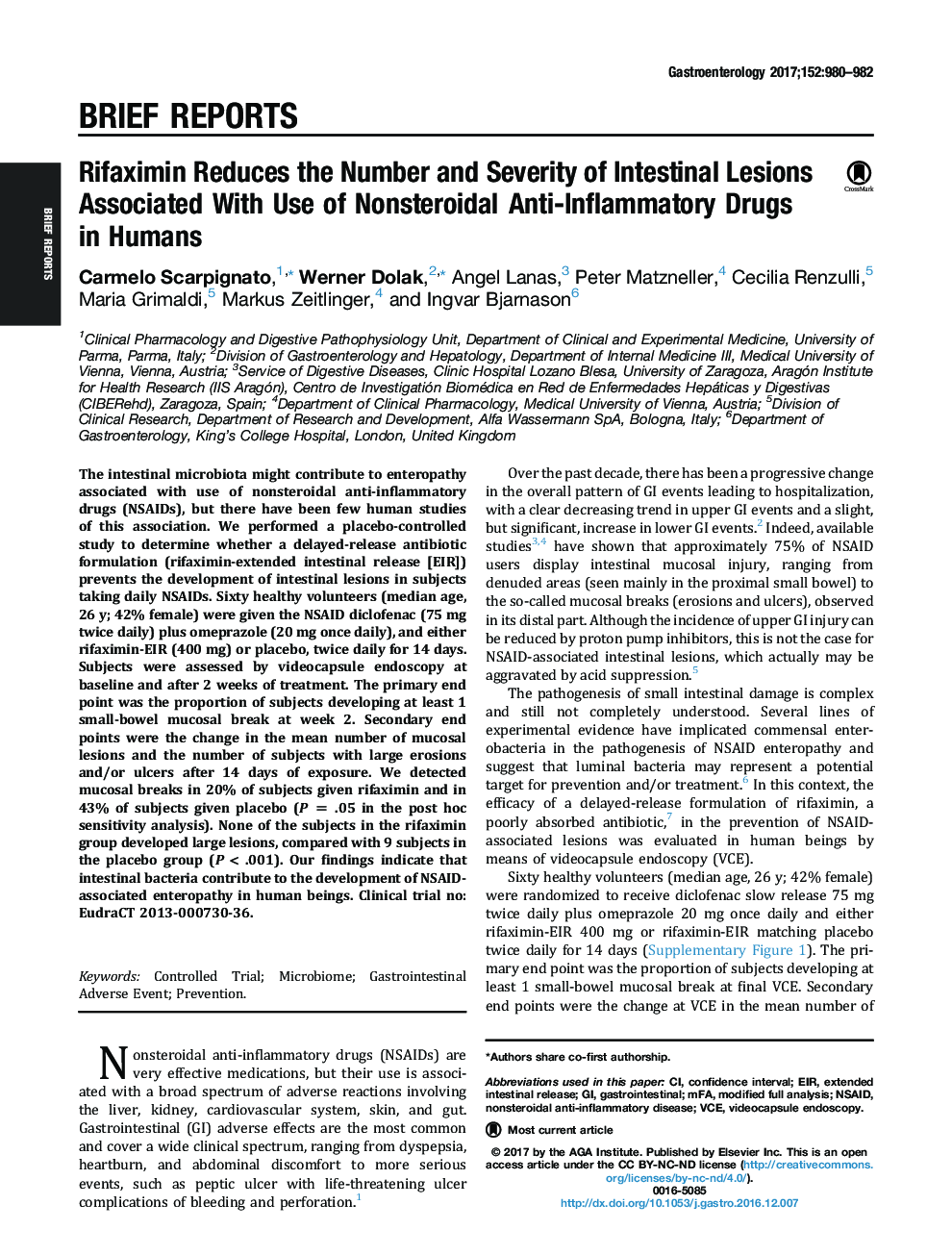| Article ID | Journal | Published Year | Pages | File Type |
|---|---|---|---|---|
| 5658477 | Gastroenterology | 2017 | 6 Pages |
The intestinal microbiota might contribute to enteropathy associated with use of nonsteroidal anti-inflammatory drugs (NSAIDs), but there have been few human studies of this association. We performed a placebo-controlled study to determine whether a delayed-release antibiotic formulation (rifaximin-extended intestinal release [EIR]) prevents the development of intestinal lesions in subjects taking daily NSAIDs. Sixty healthy volunteers (median age, 26 y; 42% female) were given the NSAID diclofenac (75 mg twice daily) plus omeprazole (20 mg once daily), and either rifaximin-EIR (400 mg) or placebo, twice daily for 14 days. Subjects were assessed by videocapsule endoscopy at baseline and after 2 weeks of treatment. The primary end point was the proportion of subjects developing at least 1 small-bowel mucosal break at week 2. Secondary end points were the change in the mean number of mucosal lesions and the number of subjects with large erosions and/or ulcers after 14 days of exposure. We detected mucosal breaks in 20% of subjects given rifaximin and in 43% of subjects given placebo (P = .05 in the post hoc sensitivity analysis). None of the subjects in the rifaximin group developed large lesions, compared with 9 subjects in the placebo group (P < .001). Our findings indicate that intestinal bacteria contribute to the development of NSAID-associated enteropathy in human beings. Clinical trial no: EudraCT 2013-000730-36.
